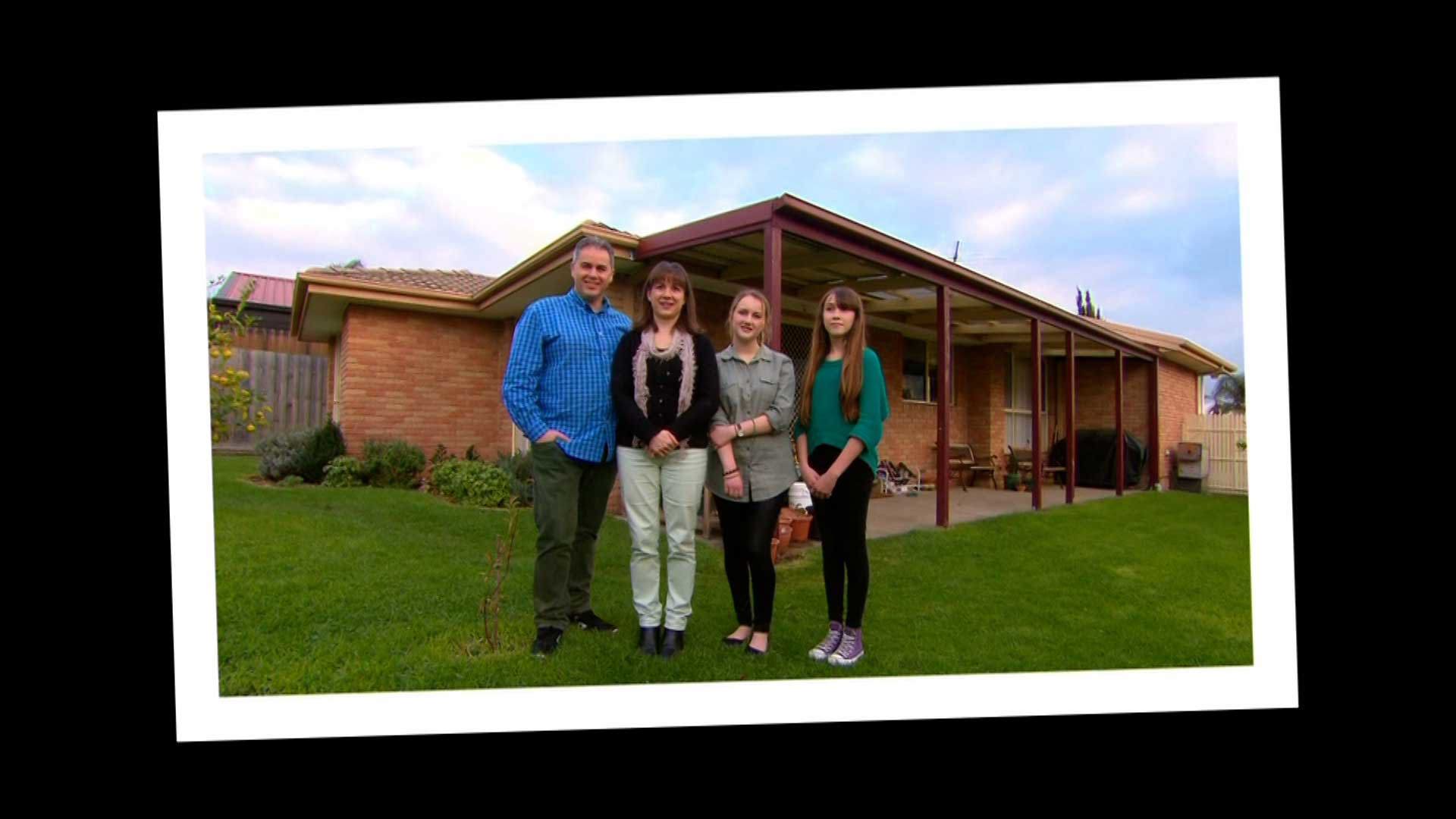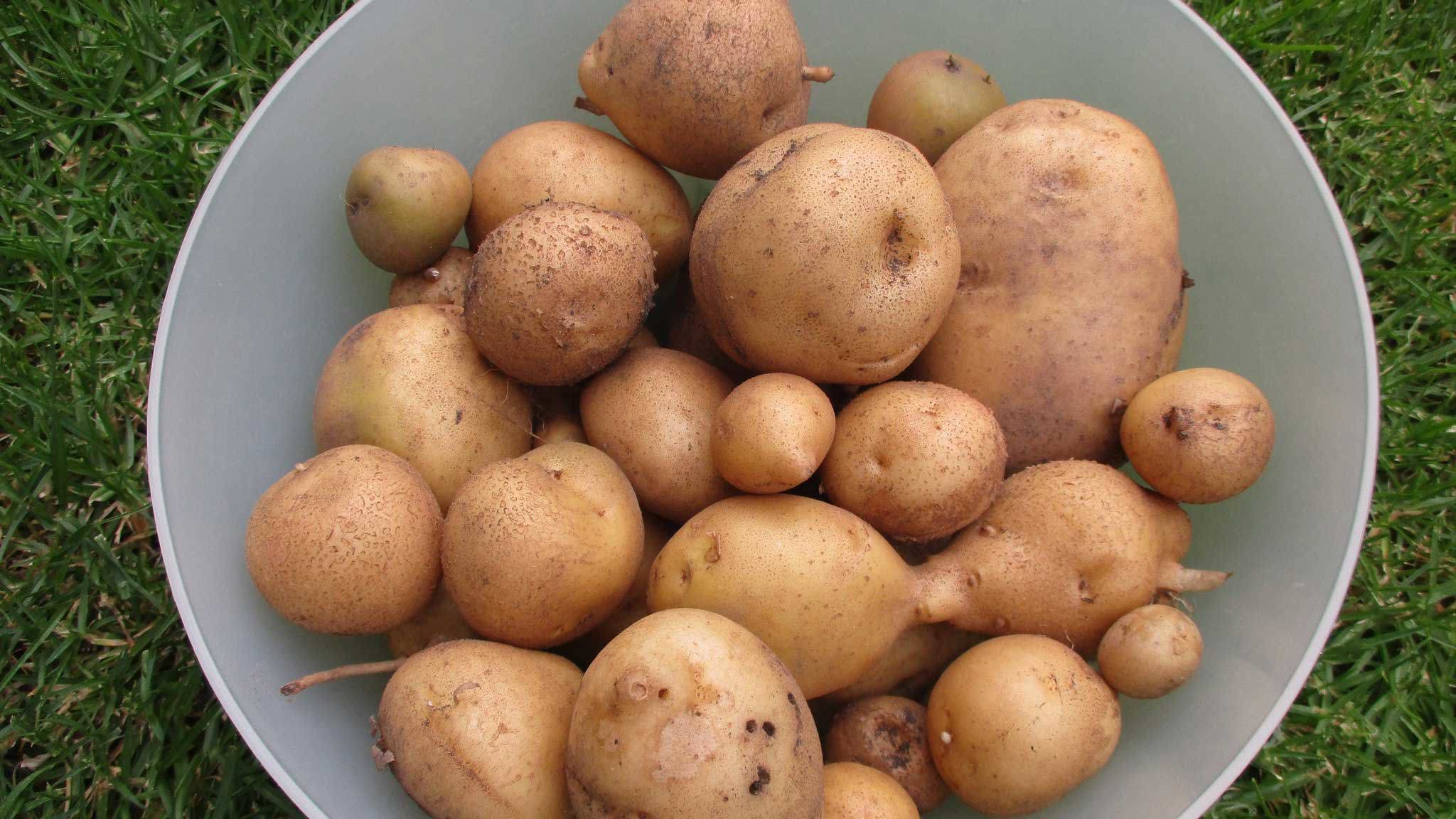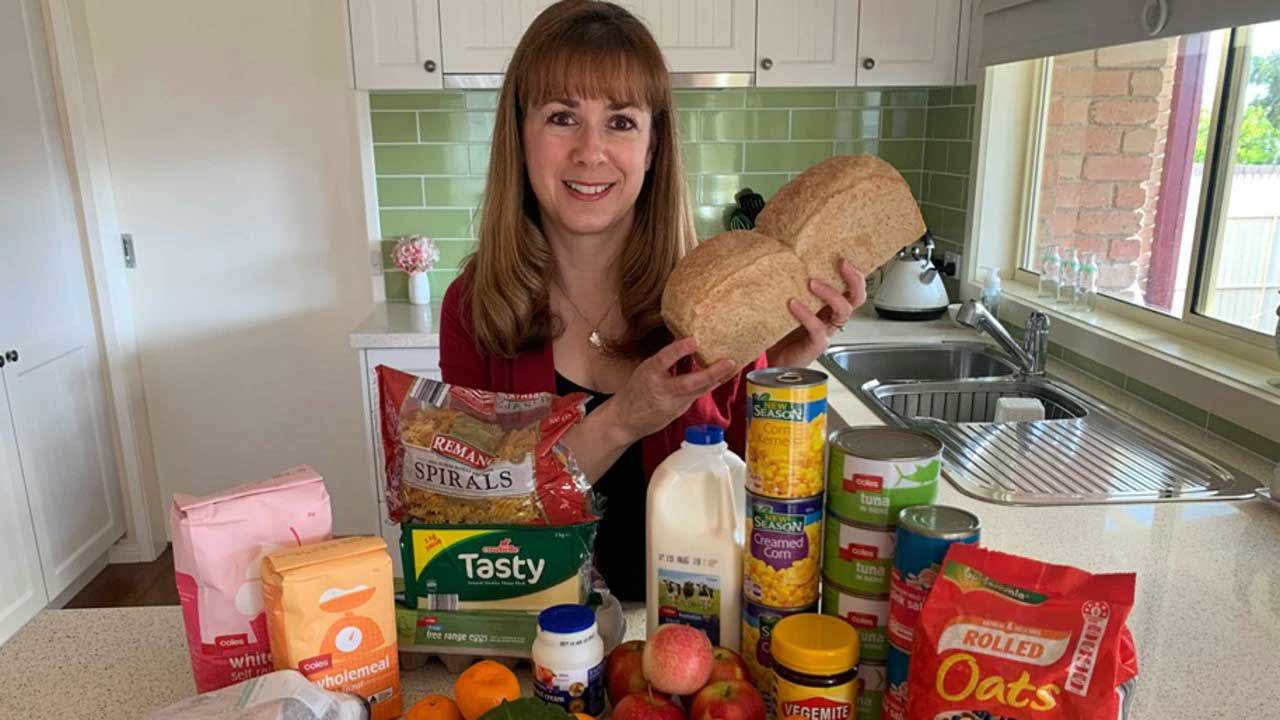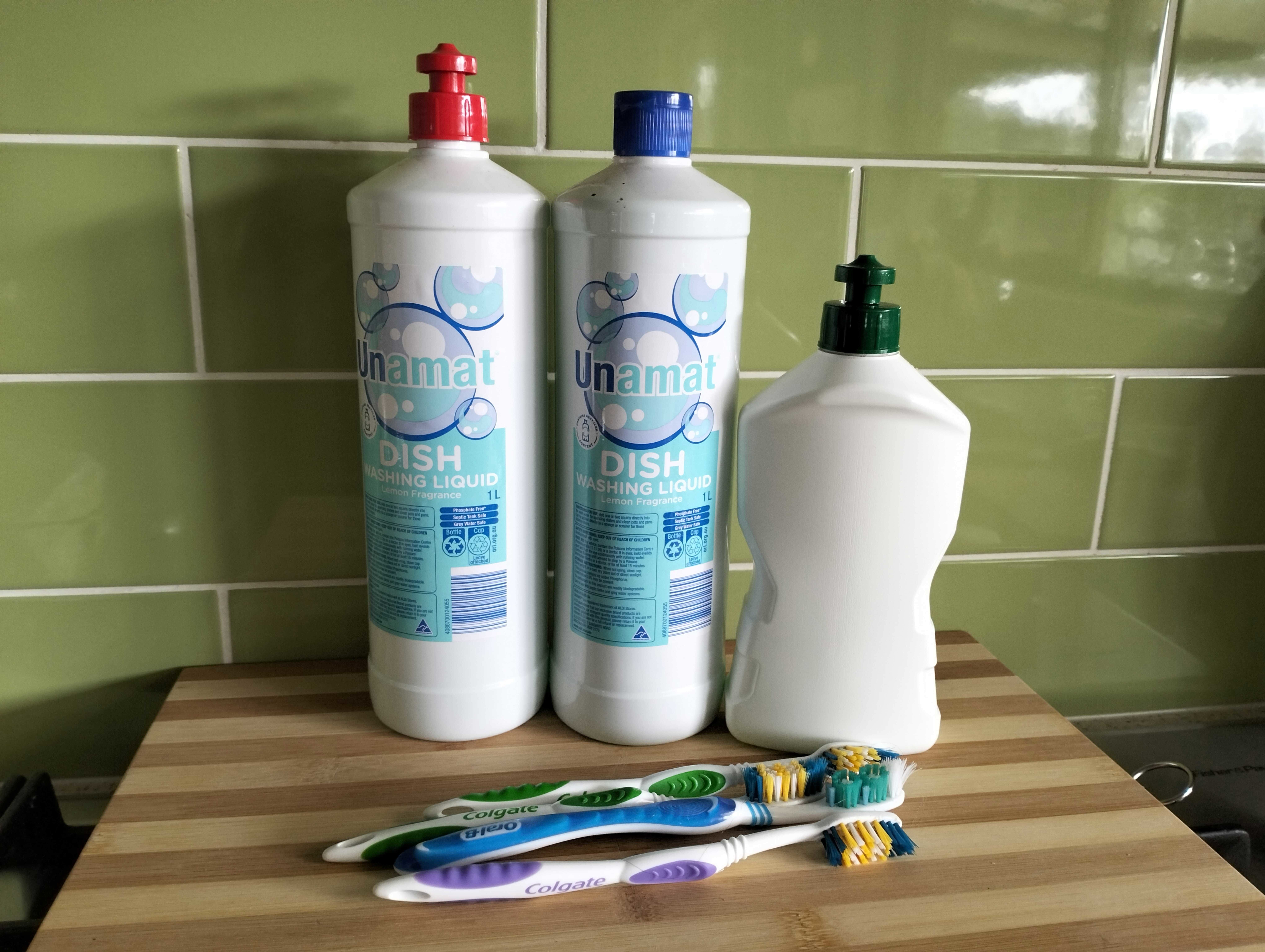A decade ago, the Gowers were dubbed "Australia's thriftiest family" after revealing on national television all the frugal tricks they used to keep their grocery bill to just $270 a month.
Ten years on, Wendy Gower and her husband Darren, from Narre Warren in Melbourne's south-east, have lost none of their super-saving ways.
When A Current Affair first featured the Gowers back in 2014, the family of four was surviving on an ultra-low income.
In 2005, the husband and wife both lost their jobs, but their careful spending meant they still managed to pay off their $100,000 mortgage in five years.
Wendy and Darren are now empty-nesters, and no longer have two children to feed, which has helped lower their grocery bill considerably. But that doesn't mean they've loosened the notch on their spending at all, Wendy told 9news.com.au.
"We're still living the way that we were back in 2014 when that story went to air. Yeah, there are a few things that have changed, but fundamentally, we're still very thrifty," Wendy said.
"As my husband says, there's no cost-of-living crisis in our house. There is a cost-of-living pressure, but we seem to be able to manage it fairly well."
Have you got a story? Contact reporter Emily McPherson at emcpherson@nine.com.au
The couple are so thrifty that, despite supermarket prices skyrocketing in recent years, they now spend $100 less on their groceries than a decade ago – albeit for a household of two instead of four.
These days, Wendy and Darren keep their grocery bill to just $150 a month, or $37.50 a week.
And that's not just for food, either. That amount includes basic toiletries like shampoo, hair conditioners, deodorant and simple cleaning ingredients.
Up until the beginning of this year, the couple's grocery bill was more like $120 a month, Wendy said, but higher prices at the checkout had impacted even her careful management.
READ MORE: As Australia lags, wages in these countries are growing
There was no denying that high inflation and the surge in interest rates meant many families were now doing it tough, however, it was still possible to live reasonably well on a low income, Wendy said.
"I think everyone is under some sort of financial stress, or pressure, depending on whether you've got a mortgage or not," Wendy said.
"If you've got a mortgage, then absolutely times are tough. But there are ways to stretch your income, stretch your dollars until they scream, if you want to."
The Gowers were still living on what would be considered a low income, Wendy said, despite Darren now working full-time in a hospital admin job four days a week and one day at their church.
To supplement their income Wendy does some house cleaning, however, in a few years' time she hopes to be in a position to retire.
So how exactly do they save so much on their grocery bills? Wendy, who writes an online blog with frugal tips, called My Abundant Life, has also shared some of her thriftiest hacks with 9news.com.au.
How to slash your food bill
Much of Wendy's super-saving lifestyle can be boiled down to her key tenets of "make, bake, sow and grow".
Wendy and Darren grow a lot of their fruit and vegetables in their backyard.
Fruits the couple produce include lemons, apricots, plums and raspberries.
"We've got the raspberry plants that give us four kilos of raspberries each season. Raspberries can cost an absolute fortune if you buy them by the punnet," Wendy said.
"From those raspberries, I can make jam, and it's almost free because we use the fruit from our backyard and we just have to buy the sugar."
Winter vegetables the Gowers are currently growing include potatoes and silverbeet.
"They are just supermarket sprouting potatoes that we continually plant all through the year. When they had that potato shortage, and the chip shortage, we were digging up 10-15 kilos of potatoes," Wendy said.
Wendy said her strategy at the supermarket was to avoid processed foods and buy only the ingredients to make their meals from scratch.
"I have to, because the price of any of the processed food now is just outrageous," she said.
Treats, like packets of chips or blocks of chocolate, were kept for special occasions such as birthdays, she said.
"When I go to the supermarket, the sorts of things on my grocery list are flour, sugar, milk, butter, eggs, cheese, a tin of tuna, a tin of tomatoes," Wendy said.
"It's all very basic ingredients and it is generic. I don't buy any brands unless the brand name is the same price or cheaper than the generic."
READ MORE OF 9NEWS' COST OF LIVING STORIES
- Study reveals when Sydney housing might be affordable. It's bad news
- Birth rate plummets as cost-of-living crisis stops Aussies starting families
- Landmark survey reveals Australia's cheapest groceries
Wendy buys her spices from a wholesaler and the family doesn't go in for more expensive cuts of meat, like steak.
"The biggest thing people ask is, how can you afford meat on your plate? We don't have steak, we can't afford that," Wendy said.
"Salmon is saved for maybe my birthday. We cook a lot of stews, casseroles, lasagna and spag bol, and we use our slow cooker as well."
Wendy buys her ingredients in the highest quantities available, providing the unit price indicates it's the best deal.
"We freeze all our leftovers, and when it comes to cooking, I bulk cook, but I don't spend a whole day in the kitchen – who's got a whole day to spend slaving over a stove?" Wendy said.
"When I want to cook spag bol at night for our dinner, I don't cook for two, I might cook for 16 and freeze the rest.
"By doing that, over two consecutive gas bills, we reduced our gas usage by 23 percent."
Clean your house for $1 a year
As a professional cleaner, Wendy said she was amazed by how many expensive cleaning products people thought they needed to use in their homes.
As an experiment, she recently cleaned her own home and that of some of her clients, for a year – all with one bottle of Aldi dishwashing detergent.
"When I bought those bottles of Aldi dishwashing liquid, it was still 99 cents a bottle. It's now up to $1.49, but I didn't use the whole bottle in a year and I also used it in some of my client's homes," Wendy said.
The dishwashing detergent, watered down to different ratios, was used to clean windows, cleaning surfaces and even the bathroom.
READ MORE: A simple tool could predict risk for dementia and depression, study finds
"For household cleaning, kitchen detergent and water will do exactly what it needs to do, even soap scum in the shower. You don't need the fancy cleaning sprays," Wendy said.
"As a cleaner, I've used just about everything on the market, and they can give you whopping headaches."
Wendy also makes her own laundry power and a "miracle spray" solution for cleaning which contains vinegar, dishwashing liquid, eucalyptus oil and soda power.
The 'two-light rule', or solar lanterns
One of the Gower family rules that shocked a lot of people when their story was featured on A Current Affair was their habit of turning off all but two lights in their home at night, Wendy said.
"We still do the two-light rule. Actually, we quite often do the one-light rule or the no light, because now we've got solar lanterns," she said.
"We've got four of them, and they're fantastic. We put them out on sunny days and bring them in at nighttime. When we're ready to go sit in the lounge room to watch TV we use those," she said.
Other frugal habits the Gowers use to keep their power bills low include filling a thermos with boiled water in the morning.
"When my husband gets up early in the morning to get to the hospital, he will boil a full kettle of water," Wendy said.
"He makes his cuppa, and the rest of it goes into a thermos. And so when I get up, I don't need to boil the kettle.
"There's usually enough there for two or three cuppas. If there's any water left over at the end of the day, it goes from the saucepan to cook the veggies."
'Making do with what you've got'
Some aspects of household expenses had gotten tougher to manage compared to a decade ago, Wendy acknowledged, with the rising cost of insurance being a prime example.
However, there were still ways for people to make better decisions about where to spend their dollars, she said.
"With today's times, you've got two choices – you either increase your income or you reduce your spending," Wendy said.
"They say that everyone's doing it tough, but consumerism is still rife.
"Darren and I were up at Fountain Gate shopping centre yesterday. The food court was cram-packed. Everyone was there with their big grocery bags, brand names and that sort of thing.
"It's about being content and making do with what you've already got."








